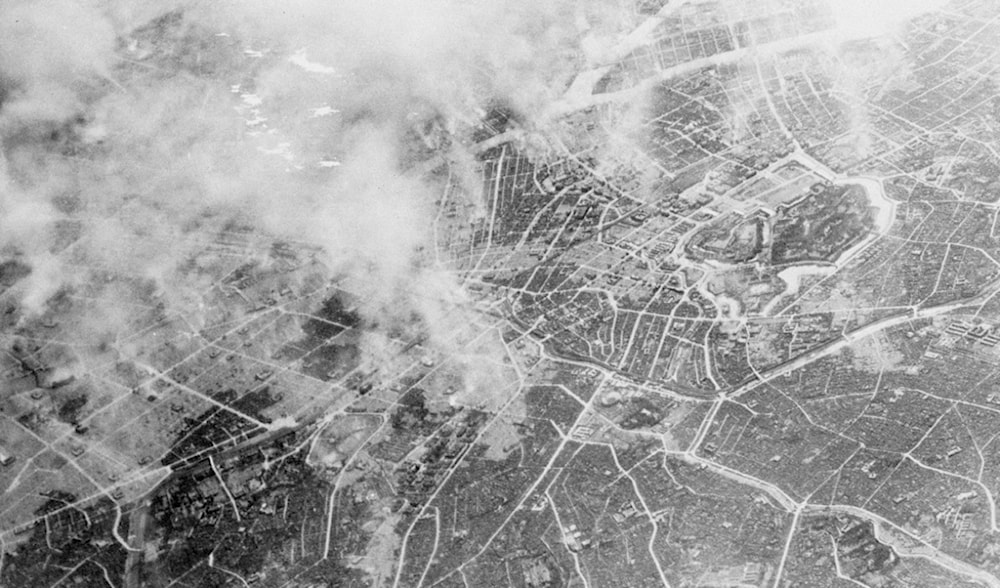DPRK urges 'thorough apology' for Korean victims of 1945 Tokyo bombing
The DPRK has called for an investigation into the deaths of Koreans killed by the US' bombing of Tokyo in 1945, as well as an apology and reparations for their families by Japan.
-

In this photo provided by the U.S. Air Force, plumes of smoke, rising 15,000 feet in the air several hours after Tokyo was hit on March 10, 1945, show the effect of the heavy bombing which burned out huge areas near the Imperial Palace. (AP)
The Democratic People's Republic of Korea called on Japan on Monday to "investigate and apologize" for the deaths of Korean victims in the US bombing of Tokyo in 1945, near the end of World War II.
The demand was made by a DPRK association representing the families of individuals who were forced into labor under Japan’s colonial rule over Korea from 1910 to 1945, according to the state-run Korean Central News Agency.
On the night of March 9-10, 1945, the US Air Force carried out a large-scale bombing raid on Tokyo, deploying hundreds of heavy bombers.
The attack, known as the Bombing of Tokyo, devastated most of eastern Tokyo in an effort to force Japan’s surrender. An estimated 100,000 people were killed in the raid, with around 10% believed to have been Koreans that Japan had abducted for forced labor.
While Japan holds annual memorials on March 10 to honor the victims, its Korean victims were reportedly never compensated, according to Yonhap News.
"At that time the Japanese imperialists kept Koreans in custody in groups, claiming that Koreans who had been subjected to subhuman maltreatment and humiliation, dangerous and toilsome labor could escape in the confusion of air raids," the association stated, noting "As a result, many Koreans died an accidental death."
The DPRK said that the remains of Korean victims were buried in 67 locations, including parks, temples, and university campuses, without proper identification.
The association called on Tokyo to issue a "thorough" apology and provide reparations to the victims and their bereaved families "for the thrice-cursed crimes of pushing innocent people into death."
Japan's surrender came after the United States dropped two nuclear bombs on its territories, killing hundreds of thousands of civilians. On August 6, 1945, an American B-29 warplane dropped an atomic bomb on Hiroshima, resulting in the deaths of up to 126,000 people, predominantly civilians. A second bomb was detonated over Nagasaki on August 9, killing up to 80,000 people.
World War II ultimately ended following the attacks.
Read more: Japan's PM makes no mention of US in Hiroshima anniversary

 2 Min Read
2 Min Read








